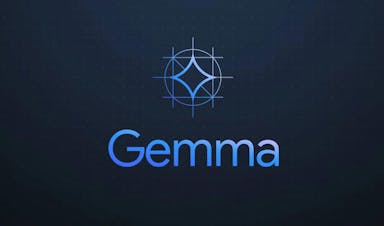How to *Successfully* Turn Years of Twitter Research Into a Full-Fledged Product

Spoiler: the end result is more human.
“There's a ton of job opportunities constantly being tweeted out there and as much as I tried to retweet them all, they still got lost in the feeds.”
This is the problem that led Makers Dann Petty and Chris Molitor to create a *different* type of job board — Epic Jobs. 👀
How it's unique: Epic Jobs sets itself apart from other job boards in that its listings feel human. Dann observed how personal tweets about open jobs garnered attention, and replicated that feeling on the platform. Job seekers can browse 90-140 second video clips called “Intros,” where they can learn about the opportunity directly from the hiring manager. The site also features “Office Tours,” which are fun videos that give you a virtual tour of a company's workspace.
It's worth noting that Epic didn't come to be overnight. In fact, Dann has been connecting people to jobs via Twitter since 2010, and has been conducting experiments, polls and interviews about hiring along the way. It's a novel idea in a crowded — albeit difficult to crack — job hunting market. More from Dann and Chris themselves on launching the MVP, how to conduct research on social media and why they're excited about video.
What originally inspired you to start connecting folks to jobs via Twitter?
DP: Twitter is great because it’s where a large part of our tech/creative community is. I’m a freelance designer and I relied heavily on Twitter to build, grow and maintain that community. You get a lot of job opportunities but can’t take them all, so Twitter is a great place to share them with your friends and community. It’s all about connections and relationships. So that sharing mentality has been baked into my career since I started. Also, as the host of Epicurrence, an event for the tech industry, there was no better feeling than connecting people and hearing all the jobs that happened because of it. So I’ve been sharing jobs opportunities on Twitter and everywhere really for awhile now. I think a lot of us do.
What was the *aha* moment where you realized this needed to exist?
DP: I have this Tweet pinned to my Twitter that says:
I tweeted that on a Sunday morning at 7:38 AM and it ended up getting over 1M impressions with 37K real engagements and hundreds and hundreds of jobs in it. I quickly realized how many people were sharing jobs via Twitter — it wasn’t just me. So, naturally, as a creator, I comped something up real quick only with the intention to make the tweets on that specific thread filterable and discoverable all on one page. That was it. It wasn’t until later I realized there could be something bigger.
What did your Twitter research look like? What were some key findings that influenced the product?
DP: A lot of the research was looking to see how people were sharing their opportunities at their companies. Everyone had a link to the usual apply destinations or their career pages but there was nothing connecting all these Tweets together, and there wasn’t a great way to search for jobs on Twitter. After seeing how people were tweeting, we evaluated how we felt after going through all the job opportunities, and it felt best when we could see who was hiring. It felt best when we could actually see a person's photo, their name, how they tweet, etc. — it just made more sense.
While you just get a logo and some text with most job boards, we wanted something more personal. You’re more likely to react to a person's face than a logo. Then it became obvious to us that we needed to take it a step further with video. We hadn't seen many video job descriptions out there, but we're trying to change that. We don’t know if it’ll work or not, but as a filmmaker, I’m obsessed with video right now.
Also, polls are absolutely incredible on Twitter. I’ve got such a responsive community on Twitter and I love how open they are to giving feedback quickly. I’ll ask random questions with a poll just to see what people think.
What was the hardest part of preparing to launch? What new skills did you have to learn?
CM: Having to stop the unending-process of polishing a product is definitely the hardest part of shipping. It's never 100% perfect or complete, but at some point you realize you're focusing on things people will likely never even notice. Being self-aware in this regard is always difficult.
When planning the site architecture for epicjobs, we had to account for the fact that essentially all of the content was coming from either Twitter or YouTube. Utilizing those platform APIs and plugging it all into a seamless user experience was a unique challenge and something we’re continuing to explore as we grow the platform.
DP: To add to that, we had to keep remembering why we’re building this; it's literally just to get people jobs. It didn’t need to be fancy or perfect — it just needed to work.
Has your idea been validated? What's the response been like?
DP: Oh, 100000 percent. We were not expecting this really. I mean you like to think your idea is great but actually hearing from others is just incredibly humbling.
What’s something you’ve unintentionally discovered while building Epic Jobs?
CM: The concept of “interviewing the interviewer” to learn about job opportunities seemed so simple and basic that I just assumed it was being done elsewhere. My initial thinking was the quality of these videos will stand out among the crowd. However, it didn’t take long for us to realize that this is not being done at all. It was very surprising (and a little confusing to be honest!). Why has this not been done yet?!
What habits help you stay productive as a Maker?
CM: COFFEE!!! Honestly though, managing your time and knowing when to turn off the screen is a big habit I’ve had to learn over the years. This helps keep interest fresh and prevents burnout.
DP: Lots of breaks. Breaks help me focus. Whether just going outside or playing Fortnite — just taking a break from what you’re doing to let your mind rest and wonder is a great habit to get into.
Also Chris and I don’t get caught into email or Slack exchanges, we just text each other. Highly recommend. It’s a great habit to have with a friend you’re jamming on things with. You don’t always have to spin up a new Slack and things. Keep the friction low on communication because ultimately that’s what’s most important for your team.
What advice would you give Makers who want to conduct research on a social platform?
DP: Just to do it. It’s free. Take advantage of the polls and don’t be afraid to ask your friends questions. There are a lot of tools out there for feedback but try to spend money when you don’t have to — utilize your networks first. Also make sure you thank people.
What's next for Epic Jobs?
CM: We’re going to continue providing job seekers insight into what employers are looking for through video intros, interviews and office tours. And we’re also excited to provide employers insight into job seekers as well. We’re in the planning stages now of expanding our services to include more information about our job seekers and their skills. Stay tuned!
DP: Yeah, we really want to become a great source to for connecting employees and job seekers in a more intimate, personal way. We want to be known as experts in job connections and in video. Whatever we need to do in order to accomplish that, that’s what’s next.
Comments (3)
Kunal Bhatia
design @mercury
Danny Acton
keep it up!
Michael Eatonn
Michael Eatonn
More stories
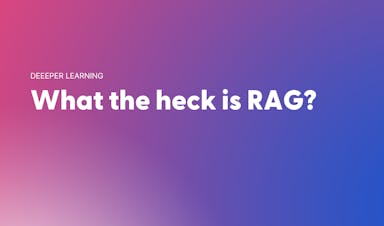
Aaron O'Leary · News · 4 min read
Q&A: What the heck is RAG?

Sarah Wright · News · 3 min read
Q&A: What makes AI models hallucinate?
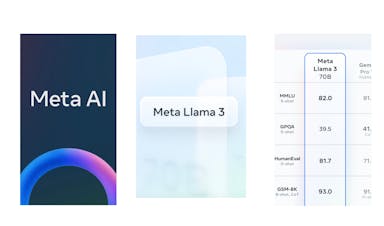
Kyle Corbitt · How To · 3 min read
What we've learned in 3 days of Llama 3
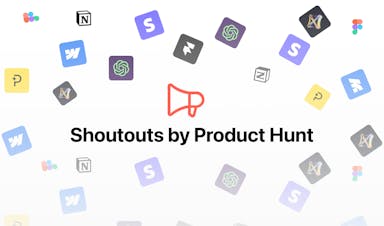
Aaron O'Leary · Announcements · 2 min read
Introducing Shoutouts
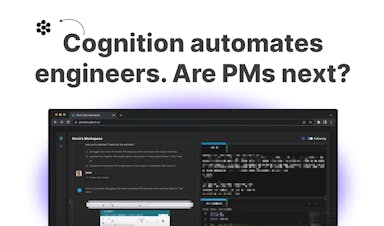
Finn Lobsien · Opinions · 5 min read
Can Devin AI Replace Product Managers?

